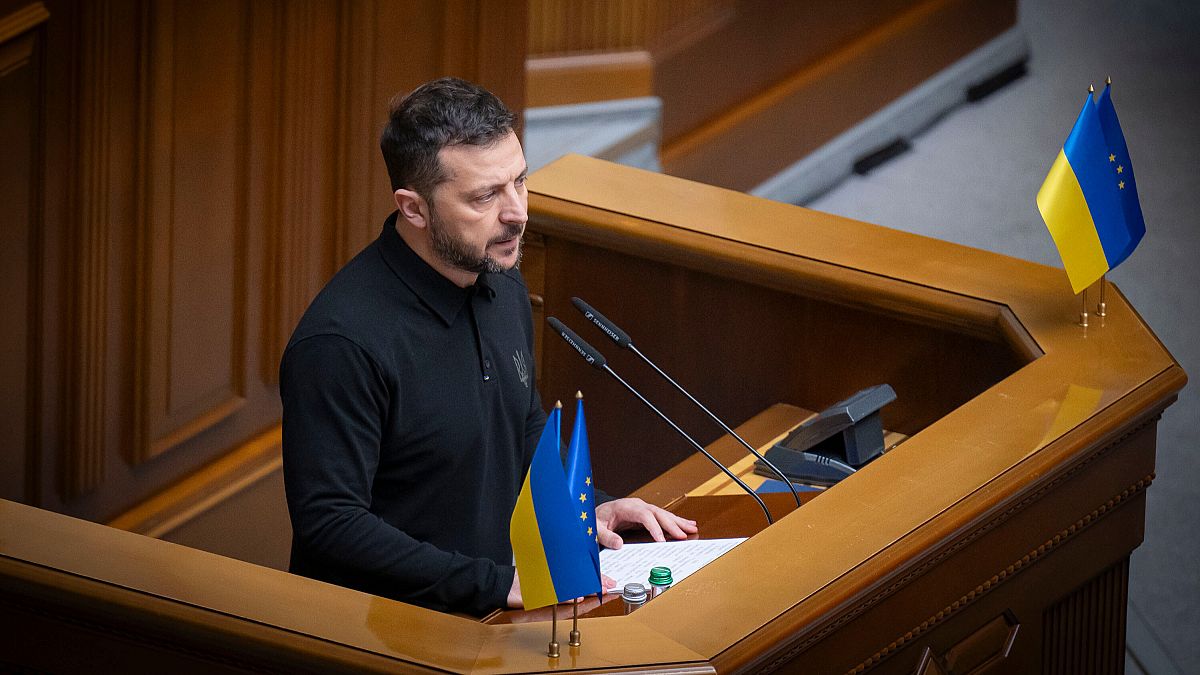Though Russia’s gains have been incremental, its steady forward movement is slowly progressing — and Ukraine is pleading for Western help on a larger scale.
NATO Secretary General Mark Rutte has remained noncommittal about Ukraine’s path to joining the alliance even as Ukrainian President Volodymyr Zelenskyy presents a “victory plan” that hinges on his country becoming a full member before the war ends.
Zelenskyy said on Wednesday that his “victory plan” could bring peace to the country by next year. However, many of Ukraine’s NATO allies have stopped short of publicly voicing their support for the country completing the accession process while Russia’s invasion continues.
Speaking to reporters on Wednesday at NATO headquarters in Brussels, Rutte was non-committal about Ukraine’s path to membership, saying the priority at this stage is to put Ukraine in a position to negotiate the best possible deal in any future negotiations with Russia.
“We are in close contact with allies, with Ukraine, to see how we can take next steps,” Rutte said, declining to provide details.
“NATO membership is a sovereign right to ask for, from every nation which is somehow part of our geography. And the only ones deciding on it are the 32 members already in NATO and the one country who wants to become a part of NATO.”
Securing NATO membership is the first point in Zelenskyy’s five-point victory plan, which he has presented to the Ukrainian parliament.
He said allowing Ukraine into the alliance would be a “testament of (allies’) determination” to support his country since it would bring Ukraine under the protection of NATO’s collective security guarantee — Article 5 of the military alliance’s treaty, the pillar on which its credibility is based.
Article 5 is a political commitment by all member countries to come to the aid of any member whose sovereignty or territory might be under attack.
But NATO makes its decisions by consensus, and many allies — including the US and Germany — refuse to allow Ukraine in while fighting continues because they fear the Article 5 obligation would drag them into direct conflict with Russia.
At their summit in Washington in July, NATO’s 32 members declared Ukraine on an “irreversible” path to membership in the Western military alliance, but the question of how fast the process will move went unaddressed.
Any decision on offering to start membership talks is probably not likely before the next summit in the Netherlands in June.
In the meantime, Ukrainian troops are having trouble holding back Moscow’s forces, especially in the eastern Donetsk region.
Zelenskyy publicly acknowledged for the first time that in private talks with Ukraine, Western partners are increasingly discussing the prospect of negotiations with Russia.
Other parts of Zelenskyy’s victory plan include continued strikes of targets within Russia and the deployment of more air defence systems, as well as access to a broader range of intelligence from allies.

